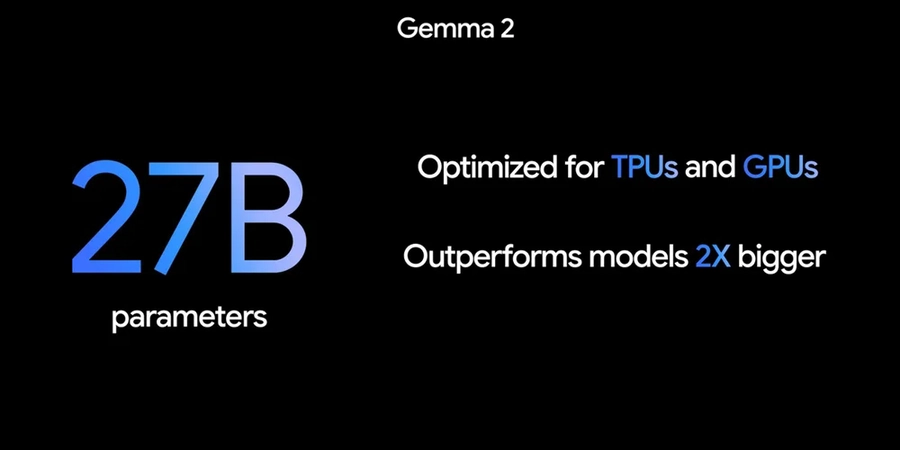# TL;DR
- Apple’s Historic Investment: Apple announces $500 billion investment over four years to advance American manufacturing, AI infrastructure, and workforce development.
- Three Focus Areas: Investment targets advanced manufacturing, AI infrastructure development, and workforce upskilling across multiple U.S. regions.
- Major Infrastructure Projects: Plans include a 250,000-square-foot AI server factory in Houston, expanded data centers, and a manufacturing academy in Michigan.
- Apple Intelligence Challenges: Apple’s AI initiatives face engineering problems, competition from rivals, and a cautious rollout strategy.
- Entrepreneurial Opportunities: Startups can tap into Apple’s expanding supply chain, contribute to AI and silicon innovation, participate in workforce training, and profit from regional growth.
- Advanced Manufacturing Fund: Apple’s $10 billion fund offers grants for U.S. suppliers in AI, robotics, and clean energy.
- Regional Growth Centers: Key opportunities in Houston (TX), Phoenix (AZ), and Detroit (MI) for various business sectors.
# Apple’s $500 Billion U.S. Investment: How Entrepreneurs Can Profit from This Historic Move
On February 24, 2025, Apple announced its largest domestic investment ever: $500 billion over the next four years to advance American manufacturing, artificial intelligence (AI), and workforce development. This isn’t just big news—it’s a launchpad for entrepreneurs, solopreneurs, and startups ready to seize new opportunities. From AI-driven innovation to localized supply chains, here’s how Apple’s bold move can fuel your next venture.
# Apple’s $500 Billion Game Plan
Apple’s investment centers on three areas: advanced manufacturing, AI infrastructure, and workforce upskilling. The company plans to:
- Open a 250,000-square-foot AI server factory in Houston, Texas, by 2026.
- Double its Advanced Manufacturing Fund to $10 billion, supporting U.S.-based suppliers.
- Launch a manufacturing academy in Michigan and expand data centers in Arizona, Iowa, and Nevada.
- Hire 20,000 workers, primarily in R&D, AI, and engineering.
This move reflects shifting global dynamics, including President Donald Trump’s 10% tariffs on Chinese imports and a push for domestic tech independence. For small businesses, it creates prime opportunities to collaborate, innovate, and scale.
# Apple’s Apple Intelligence and Siri: Challenges and Opportunities Amidst Setbacks
Apple’s ambitious $500 billion investment in the U.S. is closely tied to its efforts to enhance its AI capabilities, particularly through Apple Intelligence and Siri. However, these initiatives have faced setbacks since their announcement in September 2024. Understanding these challenges and their impact on Apple’s broader strategy is crucial for entrepreneurs and startups looking to leverage these technologies.
# Challenges Facing Apple Intelligence and Siri
- Engineering Problems and Software Bugs: Apple’s overhaul of Siri, incorporating Apple Intelligence features, has encountered engineering issues and software bugs. These challenges have delayed the rollout of enhanced Siri capabilities, initially expected in iOS 18.4 but now postponed until iOS 18.5 or later.
- Competition from Rivals: Apple Intelligence faces stiff competition from advanced AI systems like OpenAI’s ChatGPT, Alphabet’s Google Gemini, and Meta’s Llama, increasing pressure to accelerate AI development despite internal challenges.
- Gradual Rollout Strategy: Apple’s cautious approach to deploying AI features, prioritizing quality assurance over speed, has led to user dissatisfaction and anticipation for more advanced AI capabilities.
# Opportunities for Entrepreneurs and Startups
- AI Model Training and Optimization: Startups specializing in AI model training can collaborate with Apple to optimize Siri’s performance and integrate it with other Apple Intelligence features, developing efficient algorithms for real-time language processing.
- Integration with Apple Ecosystem: Companies can create apps or services leveraging Apple Intelligence’s capabilities, including on-device AI processing and enhanced personalization, such as health diagnostics or predictive analytics.
- Workforce Development and Training: As Apple invests in AI infrastructure and workforce expansion, edtech startups can partner with Apple to develop AI-focused curricula and training programs, accessing corporate and government funding.
Case Study: CogniTech, a startup that optimized Siri’s contextual awareness, significantly boosted performance and received a $50 million acquisition offer—illustrating how startups can drive innovation within Apple’s ecosystem.
Actionable Steps for Entrepreneurs:
- Develop AI-enhanced solutions that complement Apple Intelligence, such as productivity apps or privacy-focused tools.
- Leverage the Advanced Manufacturing Fund to collaborate with Apple’s suppliers, securing contracts for AI-related components or services.
- Offer training programs aligned with Apple’s AI and manufacturing initiatives to access funding opportunities.
# 1. Tap into Apple’s Expanding Supply Chain
Apple’s $10 billion Advanced Manufacturing Fund (AMF) finances U.S. suppliers producing advanced components like custom silicon and sustainable materials—offering startups a chance to step into Apple’s supply chain.
How to Get Involved:
- Apply for AMF Grants: Apple prioritizes businesses in AI, robotics, and clean energy. Cork-based manufacturers employing 6,000 in Ireland have thrived through similar partnerships.
- Become a Tier-2/3 Supplier: Apple’s Houston factory will need countless components, from cooling systems to semiconductor substrates. Small firms can bid for subcontracts through Apple’s Supplier Portal.
- Leverage Regional Growth: New facilities in Texas, Michigan, and Arizona mean local startups can offer logistics, waste management, and employee wellness services.
# 2. Ride the AI and Silicon Innovation Wave
Apple’s Houston facility will produce servers for Apple Intelligence, its proprietary AI ecosystem designed to boost productivity and creativity. This $200 billion AI push opens doors for startups to:
- Train AI Models: Apple’s servers need optimized algorithms for real-time language processing. Startups like Anthropic and Stability AI have secured contracts by fine-tuning models for tech giants.
- Design Chips: Apple’s silicon team, expanding with 5,000 new engineers, works with firms specializing in neuromorphic computing and energy-efficient GPUs.
- Develop Edge AI Solutions: Apple prioritizes on-device AI, creating opportunities for startups to build privacy-focused tools like health diagnostics and supply chain analytics.
Case Study: In 2024, AI startup CogniTech partnered with Apple to optimize Siri’s contextual awareness, boosting performance by 40% and receiving a $50 million acquisition offer.
# 3. Close the Skills Gap with Apple’s Training Programs
Apple’s manufacturing academy in Michigan will train 100,000 workers in robotics, CNC machining, and AI maintenance by 2029. This opens two doors for edtech startups and vocational trainers:
- Develop Curricula: Apple plans to license third-party training programs. Startups with VR-based simulations or micro-credentialing platforms can pitch directly to Apple’s Education team.
- Form Upskilling Partnerships: Community colleges and coding bootcamps can collaborate with Apple to reskill workers displaced by automation, leveraging state and federal grants.
Success Story: Austin-based SkillBridge raised $12 million in 2024 by offering Apple-certified courses in mechatronics. LinkedIn Learning later acquired the company.
# 4. Profit from Regional Infrastructure Growth
Apple’s expansion creates opportunities far beyond Silicon Valley:
- Houston, TX: The AI server factory needs local suppliers for precision cooling systems and renewable energy solutions.
- Phoenix, AZ: Expanded data centers will boost demand for cybersecurity firms and modular construction startups.
- Detroit, MI: The manufacturing academy will increase demand for student housing, mentorship platforms, and IoT-enabled training tools.
Pro Tip: Real estate startups can partner with Apple to develop mixed-use complexes near its facilities, while foodtech companies can bid for onsite cafeteria contracts.
# Overcome Tariffs and Global Shifts
Apple’s investment also hedges against Trump’s 10% tariffs on Chinese imports. Startups should:
- Diversify Suppliers: Use platforms like Thomasnet to source U.S.-based manufacturers of components like capacitors and connectors.
- Cut Costs with AI: Automate procurement to reduce reliance on tariff-affected materials.
# Key Takeaways
- AMF Grants: Apply early for Apple’s $10 billion Advanced Manufacturing Fund—focus on AI, sustainability, and robotics.
- AI Collaboration: Build niche tools that enhance Apple Intelligence’s capabilities, emphasizing privacy and on-device processing.
- Regional Partnerships: Target Apple’s expansion regions—Texas, Michigan, and Arizona—for B2B opportunities in logistics, training, and infrastructure.
- Upskilling Solutions: Align vocational training programs with Apple’s certification standards to unlock corporate and government funding.
Apple’s $500 billion commitment isn’t just about iPhones or tariffs—it’s a catalyst for entrepreneurial innovation. Align your business with Apple’s focus on AI, manufacturing, and workforce development, and you could secure a foothold in the next industrial revolution. The time to act is now.






